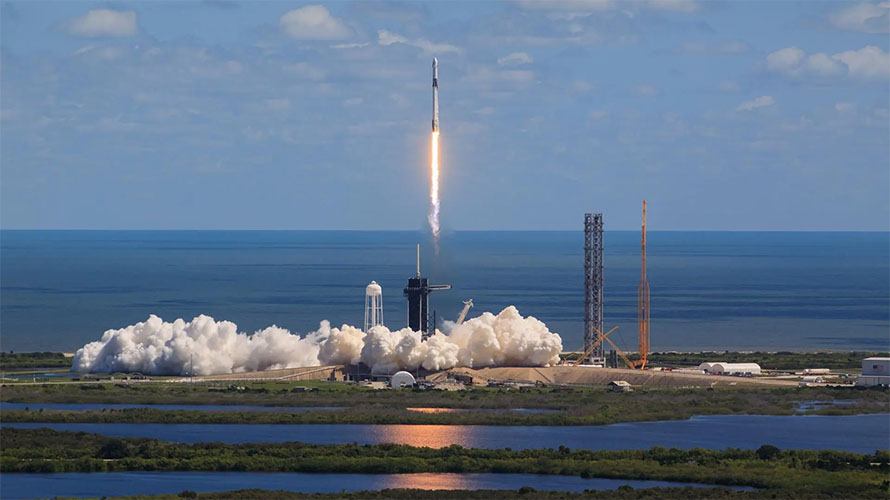Image: NASA SpaceX Crew 5 Launch. Credit: NASA
Bill Includes an Extension of the Current Learning Period for Human Spaceflight Safety Regulation
The National Space Society and Space Frontier Foundation endorsed Congressional efforts to pass H.R. 3935, a multi-year FAA policy and funding bill which includes a several-month extension of the current limit on human spaceflight occupant safety regulation.
While most of the legislation deals with the FAA’s regulation of the aviation industry and operation of the National Airspace System, it also extends the commercial human spaceflight “learning period” through the end of calendar 2024, giving Congress more time to pass a new commercial space law to extend this important restriction on premature and uninformed regulation of this new industry.
Both the House and Senate have seen progress towards that end. The House Science, Space and Technology Committee last fall approved H.R. 6131, the Commercial Space Act of 2023, which provides an eight-year extension to the learning period. Recently, the Chair and Ranking Member of the Senate Subcommittee on Space and Science introduced S. 4064, the Commercial SPACE Leadership Act, which extends the learning period by five years.
The Space Frontier Foundation and National Space Society strongly urge the Senate Committee on Commerce, Science, and Transportation to take up S. 4064 and conference it with the House to produce a long-term compromise extension of this critically important learning period.
Background information on the Learning Period
Since 2004, Congress has directed the Secretary of Transportation to require human spaceflight operators to advise their customers that spaceflight is an inherently risky activity and to fully inform them about the safety record of the vehicle type on which they would fly. If a human spaceflight system experiences a serious accident or even an incident that could have led to such an accident during a licensed flight, the Secretary may issue regulations to proscribe the specific cause or causes of that accident. However, the Department may not prospectively regulate the industry based on assumptions or guesses about vehicle safety. Congress has repeatedly extended this restriction, stating the goal should be to give industry a sufficient “learning period” to fly for revenue while collecting data on what vehicle technologies, design features, and operating approaches are more-or-less safe. If, at some point in the future, one or more industry participants chooses not to adopt industry safety standards, then not only will customers be potentially frightened away from their poor safety records, but the government can also adopt regulations to require implementation of the relevant standards. Notably, commercial flights to space only began a few years ago, and there were 24 years between Kitty Hawk and the first federal regulations on airplane safety. Clearly it is premature to enact and impose such regulations during this period of rapid innovation.



















